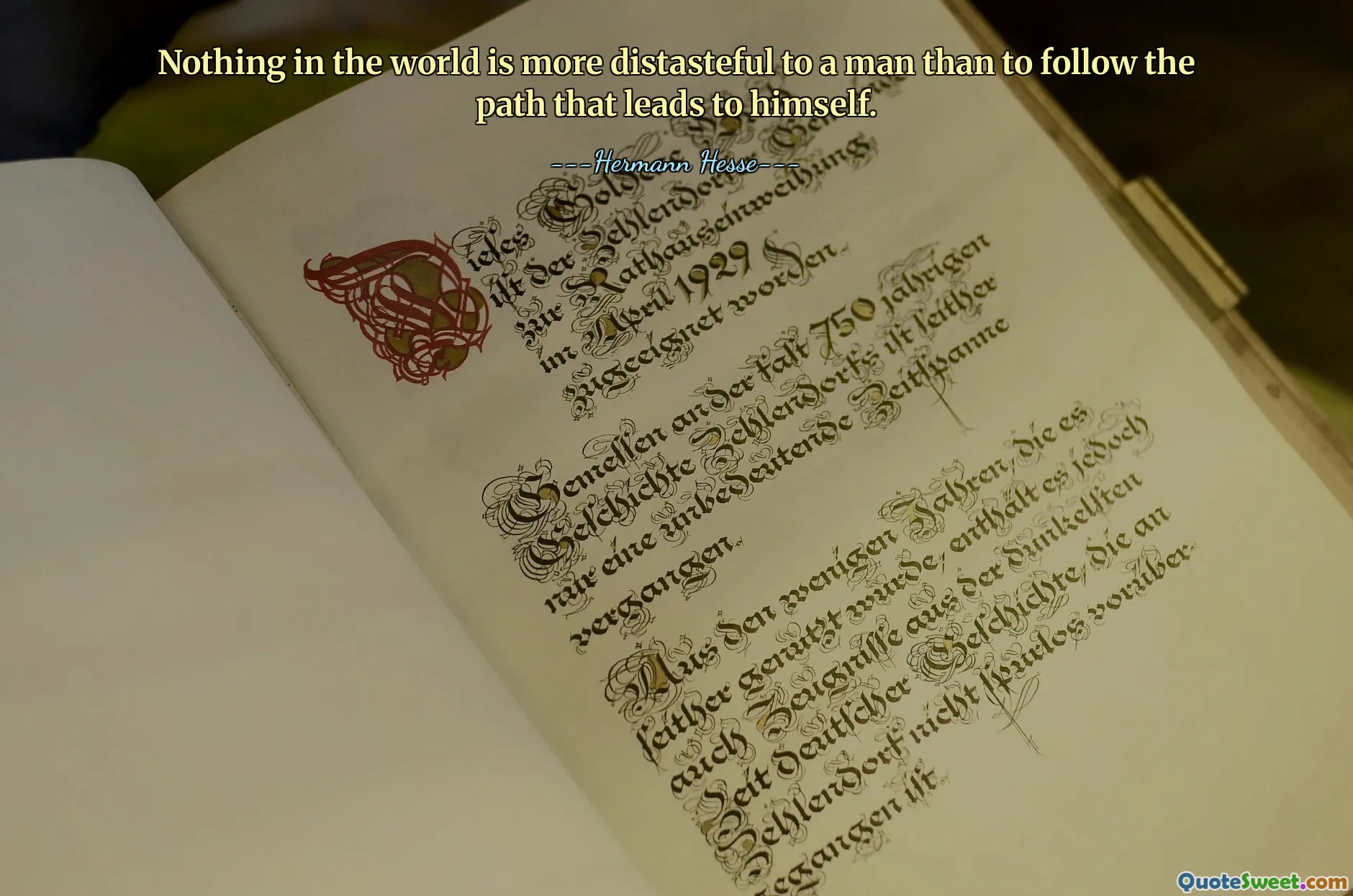
Nothing in the world is more distasteful to a man than to follow the path that leads to himself.
This quote by Hermann Hesse encapsulates a profound psychological and philosophical insight into the human condition. It suggests that self-discovery is one of the most challenging and unpleasant journeys a person can undertake. Following the path that leads to oneself requires confronting inner truths, insecurities, fears, and often uncomfortable realities about who we are at our core. Many people naturally resist this inward exploration because it can disrupt established perceptions and force us to face aspects of ourselves that are hidden or suppressed.
The distastefulness mentioned in the quote does not imply that self-discovery is inherently negative but highlights the difficulty and discomfort involved in that process. It points to a universal struggle—while we may yearn for authenticity, growth, and meaning, we are also afraid of the vulnerability and transformation that come with confronting our true selves. Such an inward journey challenges the ego and demands courage, honesty, and persistence.
In a broader context, this resistance to self-exploration can manifest in avoidance patterns—such as immersing oneself in distractions, external validation, or societal expectations rather than looking inward. Hesse's words remind us that personal growth is often a paradox: it is the most rewarding path yet the most resisted because it leads us into uncomfortable but necessary encounters with our true identity. This reflection encourages embracing the difficult path of self-discovery with patience and bravery as it ultimately leads to profound liberation and genuine self-understanding.









